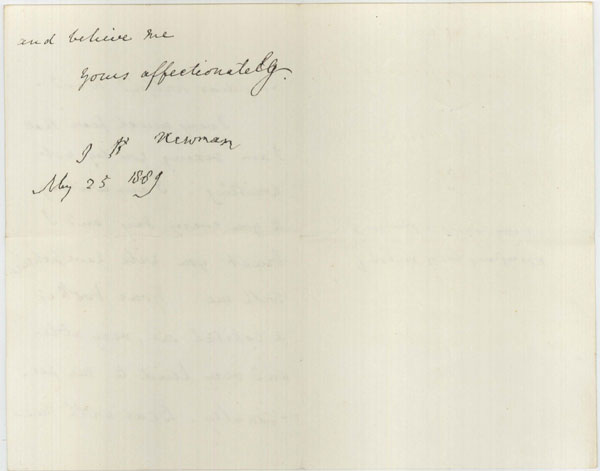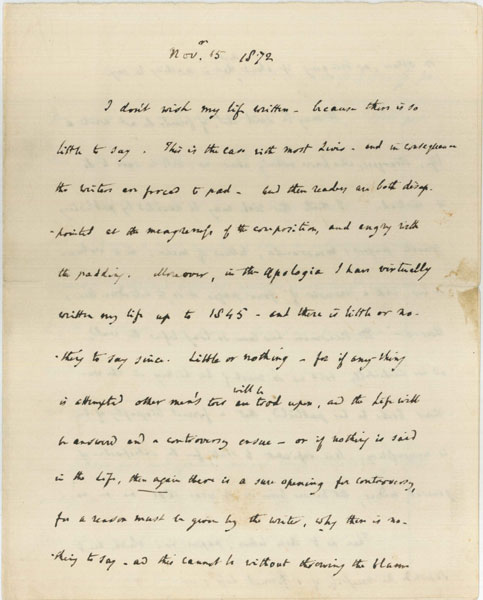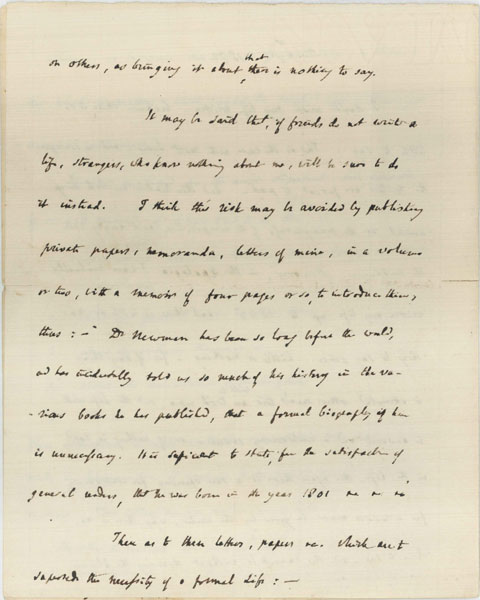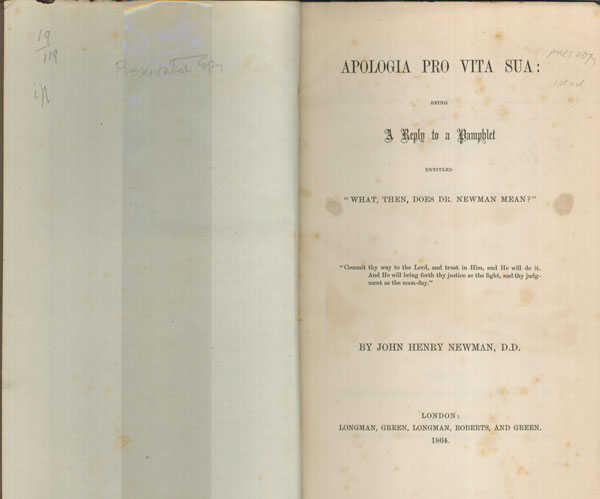By Melinda Creech, Graduate Assistant, Armstrong Browning Library
John Henry Newman was an important figure in the religious history of nineteenth-century England, providing early leadership for the Oxford movement, a group of Anglicans seeking to return the Church of England to beliefs and forms of worship based on the Church Fathers and to restore ritual expression. Later, Newman converted to Catholicism and in 1879 became Cardinal. He is perhaps best known for authoring many of the Tracts for the Times (1833-41), his Apologia Pro Vita Sua (1865-66), a Grammar of Ascent (1870), and his lectures, “On the Idea of a University” (1852 and 1858). Newman also wrote “Lead, Kindly Light (1833),” the hymn sung at the funeral of Dr. A. J. Armstrong, founder of the Armstrong Browning Library.
The Armstrong Browning Library owns thirty-five letters written by John-Henry Newman, most of them addressed to either William George Ward, Fellow of Balliol College, Oxford, Catholic theologian and philosopher or his son, Wilfrid Philip Ward, who wrote Newman’s biography in 1912.
Letter from John Henry Newman to Wilfred Ward.
21 June 1886.
This letter was written the year before Newman died. He gives a favorable critique of Wilfrid Ward’s book, William George Ward and the Oxford Movement (1889).
Your book is a capital one, very able, and very kind to me personally.
Newman regrets that he is too old to attempt to write the return letter himself. A secretary has transcribed the letter, but Newman signed with a very unsteady hand.
Letter from [John Henry Newman] to [Unknown].
15 November 1872.
Newman conveys in this memorandum that he doesn’t wish to have a biography of his life written and suggests instead that a compilation of letters and papers would “supersede the necessity of a formal Life.”
I don’t wish my life written—because there is so little to say. This is the case with most lives—and in consequence the writers are forced to pad—and then readers are both disappointed at the meagerness of the composition, and angry with the padding. Moreover, in the Apologia I have virtually written my life up to 1845—and there is little or nothing to say since.
Ward, Wilfred Philip. The Life of John Henry Cardinal Newman Based on His Private Journals and Correspondence. London: Longmans, Green, and Co, 1912.
Wilfrid Ward did collect the private journals and correspondence of Newman into two volumes, published twenty-two years after Newman’s death.
John Henry Newman. Apologia Pro Vita Sua: Being a Reply to a Pamphlet Entitled “What, Then, Does Dr. Newman Mean?” London: Longman, Green, Longman, Roberts, and Green, 1864.
This volume was all the record of his life that was needed, according to Newman’s unsigned letter of 15 November 1872.








